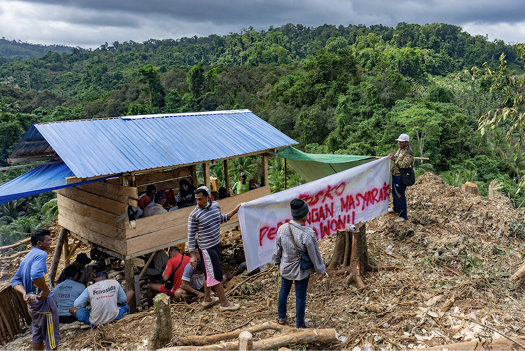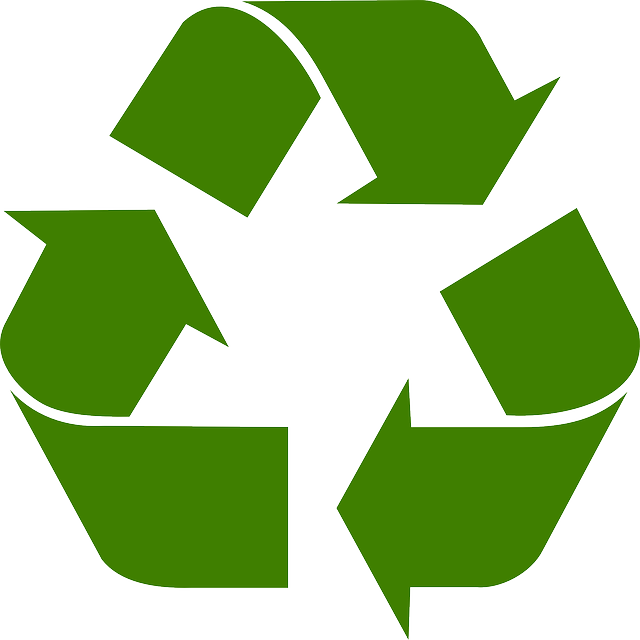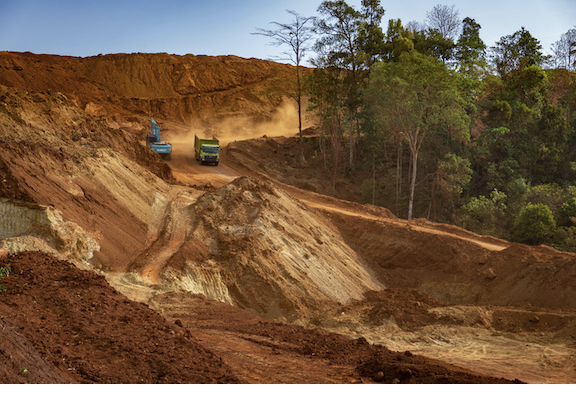Climate justice crosses borders
An essay I wrote for a local sustainability group, and a news round-up
Climate technologies require enormous amounts of metal. I’m Ian Morse, and this is Green Rocks, a newsletter that doesn’t want dirty mining to ruin clean energy.
Life on a small island is confined to resources available in immediate surroundings. Settlements grow near water springs, and what protein the land cannot provide, the sea makes available in excess. Such is the case with Wawonii, an island in the center of 17,000-island Indonesia, but at least two days from an international airport. The island’s tens of thousands of residents were a bit surprised one day to find police escorting an excavator through their forest, tearing down cashew and nutmeg trees. When locals asked why, a company responded: ‘We have all the permits.’
When I arrived on Wawonii, locals had prepared for a long battle. From the wood of felled trees, they constructed shelters to occupy and demarcate their land, and some guarded land with chainsaws. The company told residents that digging a hole in the island would bring prosperity to the island. Families were set against each other, and some were employed as de facto press agents. Mando, a young community leader I stayed with, said it was “social conflict.”
Mando was furious with the company. He had learned of land conflicts throughout Indonesia’s history, and now his island was in the crosshairs. He just didn’t know why.
Mining companies like this one are quick to broadcast that they are crucial to realizing the world’s clean energy plans. Electric vehicles increasingly rely on nickel in their lithium-ion batteries, and Wawonii’s rocks contains high-grade deposits. After leveling part of the island, the company plans to dig up ore, send it to another island for processing, then ship it to China to be funneled into batteries. But in the process, heaps of coal will power smelters, and metal-rich soil will flow into waterways and poison drinking water, killing coral and fish. For every ton of nickel and cobalt produced, the company plans to dump more than 100 tons of waste into the ocean. Mines are popping up all over nickel-rich Indonesia. The nickel will help create millions of batteries for zero-emission transportation.
When I told Mando this, he seemed uninterested. What does it matter where the metal goes? Environmental and social devastation in the name of filling consumer demand was nothing new. Indeed, in the places “blessed” with resource-rich rocks, it isn’t new.
“Mining, metals, and materials extraction is the hidden foundation of the low-carbon transition,” says Benjamin Sovacool, an energy policy professor at the University of Sussex. “But it is far too dirty, dangerous, and damaging to continue on its current trajectory.”
Humans have realized they need to rethink their energy use just as they have perfected the unequal, devastating practices that support a society reliant on gadgets and technology. It’s no wonder we think the solution to the climate crisis is technological, because the past few decades have been a nonstop promotion of techno-utopianism, in which destructive and abusive mining practices make gadgets cheap enough for faraway consumers to buy, believing their life would be made better.
The clean energy transition as it stands now relies on an industry that has never been seen as clean, sustainable, or green. However, the global market knows only one way to react to a crisis: innovate and sell. In the eyes of some miners, the crisis has handed their business a golden ticket. Clean energy can’t happen, they say, without more mining. Within just the last year, the same companies that continue to fill their pockets on promoting coal, even climate denialism, have leveraged the energy transition for their benefit. It’s as if the same multinational companies that, in the name of resource development, have sparked wars around the world from their homes in Europe, Australia, the US, or China, are the new energy companies. That would make them the largest clean energy companies in the world.
Mines everywhere — Arizona, Alaska, Indonesia, Chile, Brazil, Peru, South Africa, Tanzania, Angola, Guinea, Mongolia — are popping up, persuading investors and politicians that metal is the future. Even in rocks at the bottom of the sea, companies say, lie the perfect concoctions of metals to build the electric car fleet of our green future. To get there, underwater vehicles need to dredge to deep ocean, the largest habitable area of the planet, which lies more unknown to us than the moon but is intimately tied with what we do on land.
The metals are not just lithium and cobalt, which have become the troubled poster children of clean energy technology. Governments and think tanks speak of dozens of metals, ranging from the ones you’ve likely never heard of like praseodymium to the more common like iron. Rebuilding infrastructure, as the energy transition requires we do, involves more metal.
But what if it didn’t?
A recent study from MIT says that we already have the technology we need to transition the US energy grid: transmission lines. Also, we know that public buses and trains allow more people to travel more efficiently. An urban infrastructure that relies on individually-owned cars excludes those who can’t buy one, and perpetuates carbon-intensive, ecologically harmful impacts from asphalt and tires.
Thea Riofrancos, a political scientist of Latin America, has extensively researched just how connected social equality is across borders: “A transit system or an energy system that is more equitable on the user end also involves less resource use on the extractive end.” Places like Wawonii do not ‘need’ to be made into the rich world’s metal breadbasket.
For an industry branded as crucial for clean energy, mining is not guided by the search for the cleanest technology. In truth, we don’t know what will be cleanest, because each week brings new ideas that promise a green future. We know what works: sequester carbon in forests, protect biodiversity, and stop burning fossil fuels. Most crucially, we know that restoring land rights to indigenous groups can be fantastically effective in ensuring those things. Protecting human rights doesn’t require metal.
As mining is promoted as a clean energy leader, the public has the opportunity to hold a notoriously dirty industry to higher standards. I also prefer to see this much more broadly. Centuries of mining practices that have been called genocidal have led the rich world to believe metal must be part of the solution. Being honest about all the possible paths toward a just transition requires a reckoning with humans’ destructive businesses.
Originally published in the Sustainable Lehigh Valley booklet.
Metal going climate
Glencore is planning to reopen a major DRC cobalt mine that once produced a fifth of the world’s supply.
Mining companies want to enter the discussions forming Chile’s next constitution, having drafted a document with their concerns with the Mining Council.
Meanwhile, an influential copper mining union in Chile wants more power for itself and government in mining, including high tax rates.
An Aboriginal group in Australia has opposed the passage of an cultural heritage protection bill, which it says does not go far enough to ensure Native voices are at the center of decision making.
The Responsible Mining Foundation has announced its support for a global moratorium on deep-sea mining until its impacts can be comprehensively understood.
Reads
U.S. Plans to Spend Big on Critical Minerals; Choosing Where Isn’t Easy (Wall Street Journal)
Bacteria can recover precious metals from electric vehicle batteries – here’s how (The Conversation UK)
Serbian farmers sitting on a fortune in rare lithium deposits (The Times)
Battery recycling gains speed as new EU regulation pushes investment (Deutsche Welle)
Illegal Rare Earth Mines on China Border Multiply Since Myanmar’s Coup (The Irrawaddy)
Rosebery mine facing significant opposition from protesters concerned about the Tarkine (ABC News)
The Delusion of Infinite Economic Growth (Scientific American)
'We’re just somebody little:' Amid plans to mine lithium deposit, Indigenous, rural communities find themselves at the center of the energy transition (The Nevada Independent)
No free lunch on green energy (Las Vegas Review-Journal)
Advancing sustainable lithium extraction could help US compete, experts say (S&P Global)









Can you cite this study: "A recent study from MIT says that we already have the technology we need to transition the US energy grid: transmission lines." I'd love to hear more about this - transmission line are often seen as bad by some activists in favor of pure decentralization. But transmission seems pretty crucial, and I'd love to hear more about the reduced mining/footprint of focusing on transmission in addition to some decentralization/detachability. - Tyler